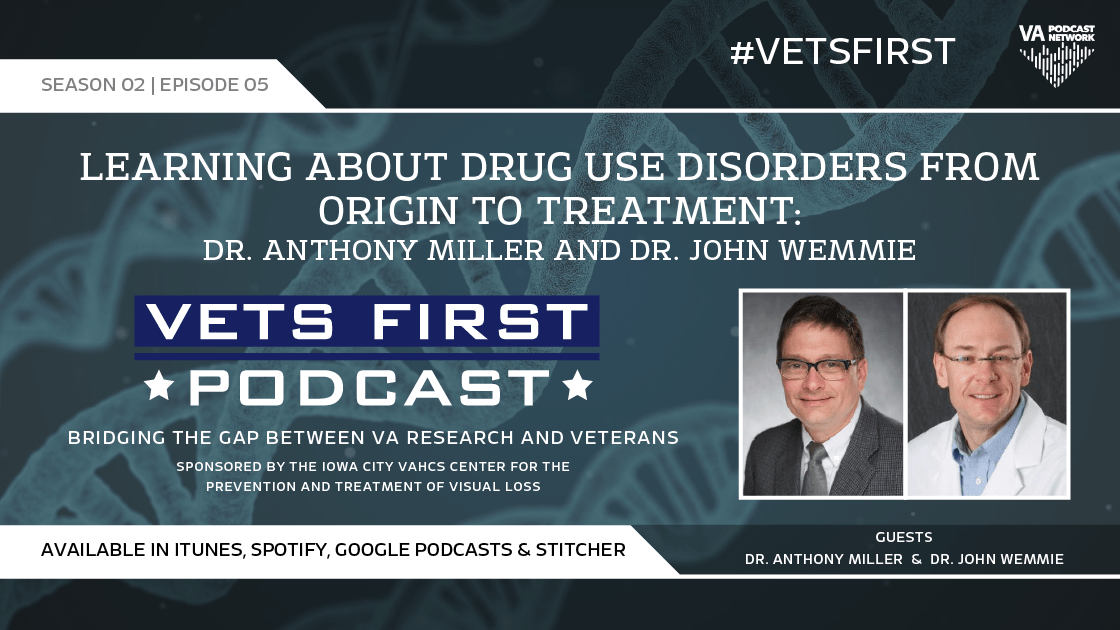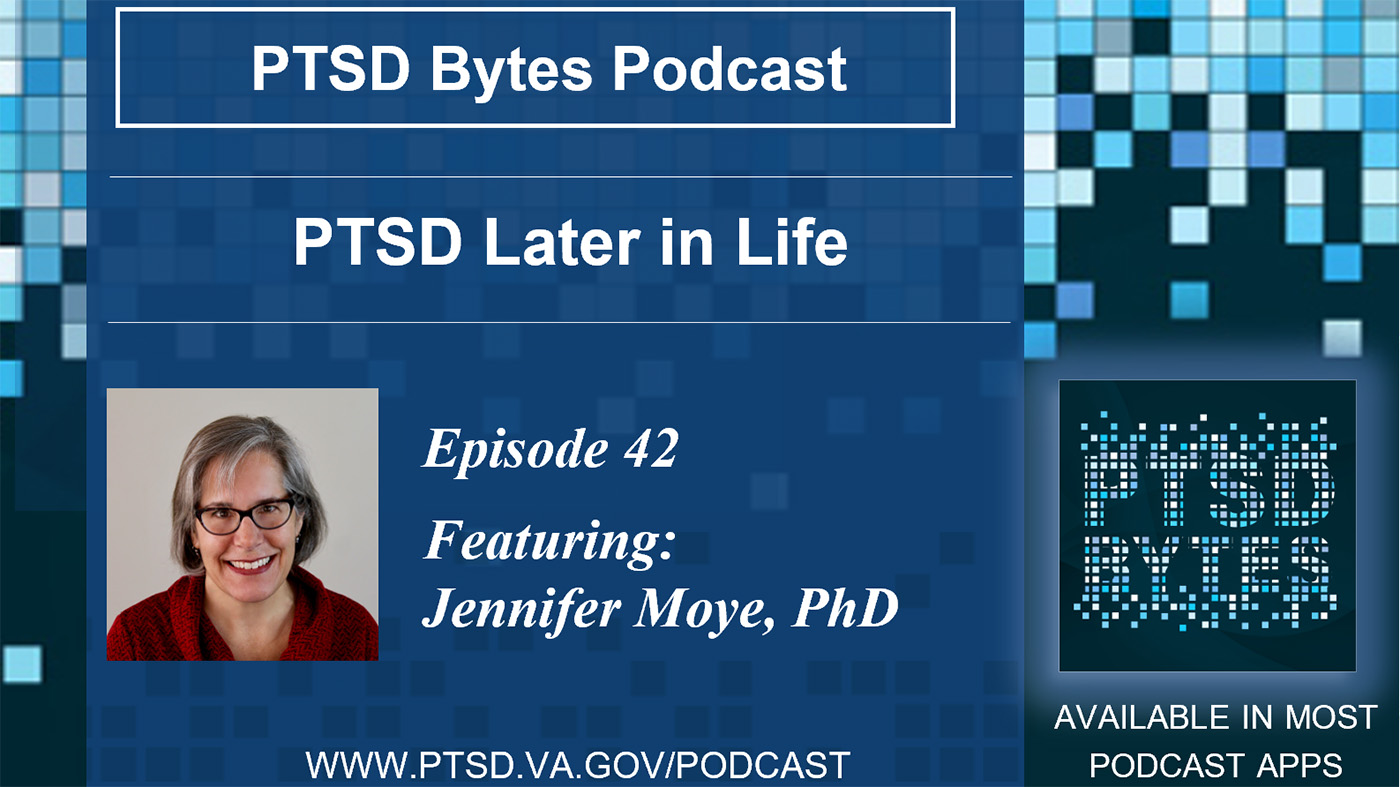In the first half of episode five, podcast hosts Levi Sowers and Brandon Rea interview Dr. Anthony Miller. The episode focuses on opiate use disorder. The three discuss the risks of sustained opiate consumption, causes and treatment options for opiate use disorder, relapsing, and societal views on addiction.
Miller received a bachelor’s degree in biology from Goshen College and a medical degree at the University of Iowa with a residency in psychiatry. Miller is a practicing psychiatrist and the medical director for Addictive Disorder Services at VA. He is an expert on opiate use disorder and supports Veterans managing substance use disorders.
VA provides substance use treatments for Veterans. They accept both self-referrals and referrals by another specialty or primary care provider. Possible treatment options include medications, counseling, and therapy. For specifically opiate use disorder treatments, many Veterans begin treatment in outpatient with inpatient treatment opportunities available.
Following the opioid epidemic, VA is dedicated to opioid safety and discovery of the safest options for long-term pain management. VA conducts research, gathers resources, and explores treatment options to improve the safety of pain management treatment plans. Click the link to learn more about the VA’s opioid safety initiative.
In the second half of the episode, Levi and Brandon welcome Dr. John Wemmie to explore and break down the science behind addiction itself. Wemmie is a staff psychiatrist and director of research for behavior health at the Iowa City VA, and he is a Roy J. Carver Endowed Chair of Psychiatry and Neuroscience.
Wemmie is an Iowa native, growing up in West Burlington. His career in research began at Central College in Pella where he received his bachelor’s degree in chemistry, and he went on to receive his MD, complete a residency in psychiatry, and finish a PhD in physiology and biophysics at the University of Iowa.
Wemmie’s current research focuses on the role of brain pH and acid sensing ion channels (ASIC) and behavior and brain function. The nucleus accumbens, found in the basal forebrain, is related to reward and reinforcement and has been found to relate to addiction. The abundancy of ASIC channels in the nucleus accumbens has driven research to explore the connection between the biological and genetic factors on substance use disorders. Click the link to learn more about Wemmie’s research.
VA currently has its own independent research department, the Office of Research and Development, which funds researchers to explore Veteran specific related issues. The VA research program has and continues to make advancements in both Veteran healthcare and general healthcare, with some of the top researchers and physicians at the forefront of that research. Eligible participants can volunteer in clinical trials and studies to contribute to the advancements of the VA’s research.
Listeners should also listen to episode four, where Veterans Trevor Siver and Henry Uken talk about their own experience with substance use disorders.
Topics in this story
More Stories
Under Secretary for Health talks with two Veterans who have benefited from a groundbreaking new way to attach a prosthetic limb.
Podcast panelists discuss PTSD and aging and potential treatment options.
On the Ending Veteran Homelessness podcast, learn how the harm reduction approach to substance use can help homeless Veterans.








